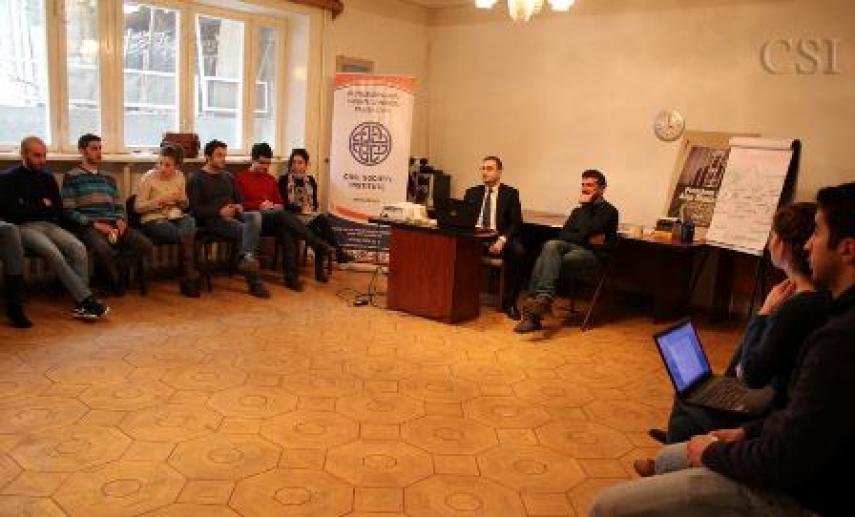NON-GOVERNMENTAL ORGANIZATION
Series of Trainings on Transitional Justice

On February 24-26, March 3-5 and March 10-12 new
training sessionson Transitional Justice took place in
the framework of the Coalition for Rebuilding of Trust projectimplemented in
Armenia by the Civil Society Institute in partnership with the Caucasus
Institute. Beneficiaries are human
rights activists, journalists and students. The selected participants were
invited to take part at the training, which
was this time organized in Yerevan. Each set of training lasted for 3 days, with three-hour sessions (presentations and workshops) each day.
During
the first training day, ArtakKirakosyan, the Chairman of the Board
of Civil Society Institute NGO, started the program with an interactive
discussion about the notion of Justice. In the course of the discussion and
interactive game the participants came up with their ideas and perceptions of
the concept of justice.
After
the break, Alexander Iskandaryan, director of the Caucasus Institute, continued the program and talked about so-called “color
revolutions” and “Arab spring” phenomenon, their reasons and consequences. The
participants discussed the recent developments in Egypt, Libya and Ukraine.
The participants started the second
day session with a brief summary of the previous day. Then they discussed
Transitional Justice, its notion, mechanisms, necessityandeffectiveness. A view on Justice as a
reflection of social agreement was also discussed in detail.
On the final day of the program the
participants met Vladimir Vardanyan, with whom they talked about transitional
justice and discussed it in the context of the Armenian Genocide. After the
discussion the participants summed up the general ideas and filled in the
evaluation forms.
In their evaluation forms the participants mentioned that the information
provided during training sessions was useful and interesting. They got an
opportunity to discuss various points of view on vital issues as well as to
analyze and compare different opinions. The participants also underlined that
they appreciated the opportunity to talk about issues
which are very sensitive and important for them, for instance, notion and examples of crimes
against humanity, different dimensions of Justice, the Armenian Genocide, as
well as the painful experience of other nations: Genocide in Srebrenica and Rwanda
and Holocaust.




